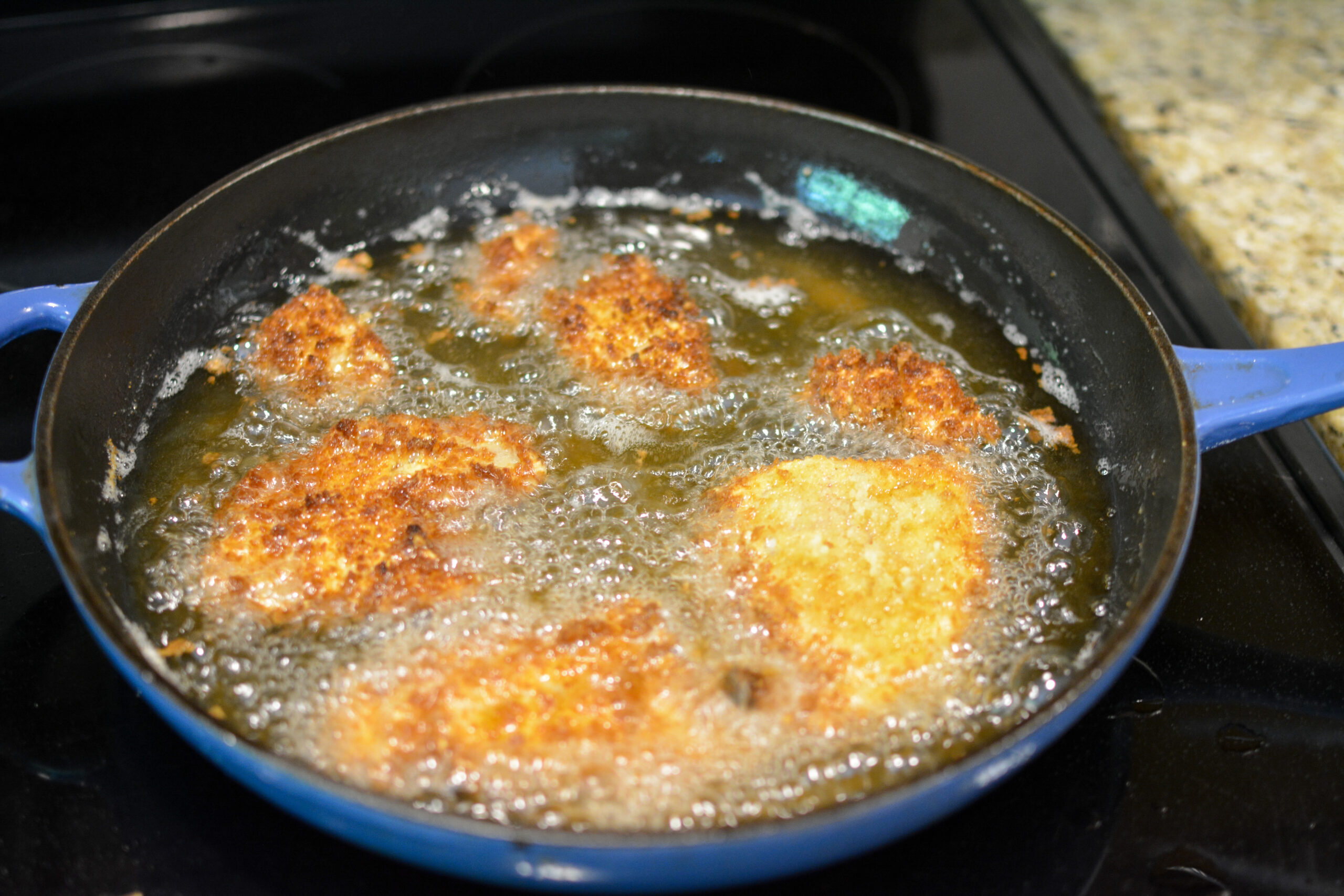As one of the most popular cooking oils in commercial kitchens, peanut oil is a versatile fat. It’s an excellent oil for frying and roasting and a stellar ingredient in marinades and vinaigrettes.
That said, there may be times when you don’t want to use peanut oil. Maybe you have patrons who are concerned about potential allergens. Maybe your oil supplier is raising the price of peanut oil again. Or maybe you’re just looking for a change.
Whatever your reason for needing a peanut oil substitute, this guide has you covered. Today, we’re detailing the possible alternatives for cooking with peanut oil.
If you’re more interested in what oil restaurants normally use, or types of cooking oil and when to use them, browse our other articles.
A Distinction: Two Types of Peanut Oil
Before we begin, however, we want to make one thing clear: There are two types of peanut oil used in restaurant kitchens. They are:
- Refined peanut oil – Refined peanut oil is processed to remove the nut proteins, leaving behind just the oil. As a result, it has a mild taste and a high smoke point of 450°F. Because the proteins have been eliminated, refined peanut oil is generally safe for those with allergies. Learn more about cooking oil allergies here.
- Unrefined peanut oil – Also called cold-pressed, crude, or gourmet peanut oil, unrefined peanut oil leaves the nut proteins intact. As such, it has a buttery taste and a lower smoke point of 350°F. It will trigger allergic reactions in diners with a peanut allergy, so it’s best avoided by anyone with hesitations.
Refined peanut oil is the most common kind of peanut oil in restaurant kitchens thanks to its neutral flavor and high smoke point. Because of these attributes, finding a refined peanut oil replacement is relatively easy; all you need is another neutral oil.
Finding an unrefined peanut oil alternative, however, is challenging, as nothing truly imitates that nutty flavor. Crude peanut oil plays a starring role in some Indian and Thai dishes (among others), making it difficult to outright replace. If you’re in a pinch, sesame oil can be a suitable replacement for peanut oil.
Moving forward, when we talk about peanut oil, we’ll be referring to the refined type.
Uses for Peanut Oil
If you want to intuitively choose replacements for peanut oil, you need to understand what it’s used for.
In a nutshell, it can be used for almost everything. Due to its high smoke point, peanut oil is an incredibly versatile oil with a wide range of cooking applications, including:
- Roasting
- Deep and shallow frying
- Grilling
- Searing
- Sautéeing
It’s also used in emulsions; its transparent taste makes it an ideal vessel for stronger flavors.
What Can Be Substituted for Peanut Oil?
While peanut oil is a multi-talented oil, it has its limitations. Some diners with peanut allergies may be hesitant to eat anything cooked in peanut oil (even if refined oil is typically safe for those with allergies).
If you’re trying to cater to those patrons, or if you’re simply ready for a different oil, you can switch to the alternatives below.
Peanut Oil For Frying
Because it handles high temperatures well, one of the most common uses for refined peanut oil is deep frying. If you need a peanut oil replacement for your fryer, consider:
- Vegetable oil – Vegetable oil has a neutral flavor and a similar smoke point of 400–450°F, making it a perfect choice for deep frying.
- Canola oil – As for the canola oil vs peanut oil conversation, canola oil is another ideal substitution. It has a smoke point of 468°F and a mild, almost transparent taste.
Peanut Oil For Cooking
For lower-temperature cooking methods, your options are more open. Since you don’t need to worry as much about smoke point or oil breakdown, you can substitute peanut oil with options like:
- Sunflower oil – Sunflower oil is a polyunsaturated fat, so it’s not a good deep-frying substitute. However, with its neutral taste and 450°F smoke point, sunflower oil is perfect for sautéeing and searing.
- Refined coconut oil – Although it’s solid at room temperature, refined coconut oil is an excellent peanut oil substitute. With a smoke point of 400–450°F and a mild taste, it’s perfect for cooking and baking.
Or, consider other common cooking oils such as canola oil, corn oil, avocado oil, safflower oil, or coconut oil. Learn more about the differences between vegetable oil vs canola oil in our guide.
Can I Use Olive Oil Instead of Peanut Oil?
In general, olive oil isn’t a suitable peanut oil replacement. Olive oil has a low smoke point of 325–375°F, so it can’t handle higher deep fryer temperatures.
Additionally, olive oil has a slightly grassy and bitter flavor that can come through in dishes. If you value the neutral flavor of peanut oil, olive oil won’t work as a stand-in.
Using & Managing the Right Oils
Whether you’re looking after your allergy-prone patrons or just looking for a change, switching from peanut oil to a substitute may be a wise move. As long as you pick the right oil for the job, you can easily replace peanut oil.
No matter which oil you use, you’ll need a system to manage it effectively. At Restaurant Technologies, our cooking oil management solutions are designed to help you receive, use, and dispose of your oil as simply as possible.
Contact us today to find out more.
Sources:
- Bon Appétit. The Best Oils for Cooking, Grilling, Baking, and Beyond. https://www.bonappetit.com/test-kitchen/ingredients/article/types-of-cooking-oil
- Ohio State Health & Discovery. Can I eat at a restaurant that uses peanut oil if I have a peanut allergy? https://health.osu.edu/wellness/exercise-and-nutrition/is-peanut-oil-safe-for-peanut-allergies
- Bon Appétit. The Best Oils for Cooking, Grilling, Baking, and Beyond. https://www.bonappetit.com/test-kitchen/ingredients/article/types-of-cooking-oil
- Masterclass. Cooking Oils and Smoke Points: What to Know and How to Choose the Right Cooking Oil. https://www.masterclass.com/articles/cooking-oils-and-smoke-points-what-to-know-and-how-to-choose
- Canola Council of Canada. Canola Oil. https://www.canolacouncil.org/about-canola/oil/
- Bon Appétit. The Best Oils for Cooking, Grilling, Baking, and Beyond. https://www.bonappetit.com/test-kitchen/ingredients/article/types-of-cooking-oil
- Healthline. Refined vs. Unrefined Coconut Oil: What’s the Difference? https://www.healthline.com/nutrition/refined-vs-unrefined-coconut-oil
- Masterclass. Cooking Oils and Smoke Points: What to Know and How to Choose the Right Cooking Oil. https://www.masterclass.com/articles/cooking-oils-and-smoke-points-what-to-know-and-how-to-choose







